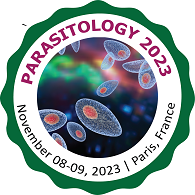Bacterial Pathogenesis
The process of causing disease is termed as Pathogenesis. Pathogenicity is the capacity to initiate disease. Pathogenesis is a multi-factorial process which depends on the immune status of the host, the nature of the species or strain and the number of organisms in the initial exposure. A limited number of bacterial species are responsible for the majority of infectious diseases.
Bacterial pathogens can be classified into two broad groups, primary and opportunistic pathogens.
Primary pathogens are capable of establishing infection and causing disease in previously healthy individuals with intact immunological defenses. However, these bacteria may more readily cause disease in individuals with impaired defenses.
Opportunistic pathogens rarely cause disease in individuals’ with intact immunological and anatomical defenses. Bacteria able to cause disease only when such defenses are impaired or compromised.
Common pathogenic bacteria and the types of bacterial diseases they cause include:
- Escherichia coli and Salmonella cause food poisoning.
- Helicobacter pylori cause gastritis and ulcers.
- Neisseria gonorrhoeae causes the sexually transmitted disease gonorrhea.
- Neisseria meningitidis causes meningitis.
- Staphylococcus aureus causes a variety of infections in the body, including boils, cellulitis, abscesses, wound infections, toxic shock syndrome, pneumonia, and food poisoning.
- Streptococcal bacteria cause a variety of infections in the body, including pneumonia, meningitis, ear infections, and strep throat.
Bacterial diseases are contagious and can result in many serious or life-threatening complications, such as blood poisoning (bacteremia), kidney failure, and toxic shock syndrome.
- Pneumonia
- Tetanus
- Typhoid Fever
- Tuberculosis
- Diphtheria
- Syphilis
- Sepsis
- Meningitis
- Leprosy
- Gastritis and Ulcers
- Bacterial Food Poisoning
- Chlamydia
- Gonorrhea
- Boils, Cellulitis and Abscesses
Related Conference of Bacterial Pathogenesis
21th International Conference on Allergic Diseases and Clinical Immunology
13th World Congress and Exhibition on Antibiotics and Antibiotic Resistance
Bacterial Pathogenesis Conference Speakers
Recommended Sessions
- Agriculture and Veterinary Parasitology
- Bacterial Pathogenesis
- Biochemical and molecular Parasitology
- Diagnostic Parasitology
- Field Parasitology
- Fungal Pathogenesis
- Immunoparasitology
- Medical Entomology
- Medical Helminthology
- Medical Protozoology
- Parasitic Diseases: Control
- Parasitic diseases: Pharmacology
- Parasitic Zoonoses
- Public Health Parasitology
- Tropical Diseases
- Vector-borne diseases
- Viral Pathogenesis
- Wildlife and Fisheries Parasitology
Related Journals
Are you interested in
- Adaptive Immunity, Memory Formation & T-Cell Engineering - European Immunology 2026 (France)
- Allergy, Hypersensitivity & Immune Tolerance - Immunology 2026 (France)
- Allergy, Hypersensitivity & Immune Tolerance Strategies - European Immunology 2026 (France)
- Antibiotic Prophylaxis - Antibiotics 2026 (UK)
- Antibiotic Resistance: Opportunities and Challenges - Antibiotics 2026 (UK)
- Antibiotic-resistant Bacterial infections - Antibiotics 2026 (UK)
- Antibiotics - Antibiotics 2026 (UK)
- Antibiotics for Various Diseases and Infections - Antibiotics 2026 (UK)
- Antibiotics: In Pregnancy and Lactation - Antibiotics 2026 (UK)
- Antimicrobial Peptides - Antibiotics 2026 (UK)
- Antimicrobial Therapy - Antibiotics 2026 (UK)
- Autoimmune & Inflammatory Disorders - Immunology 2026 (France)
- Autoimmunity Mechanisms & Precision Immunoregulation - European Immunology 2026 (France)
- Cancer Immunology & Tumor Microenvironment - Immunology 2026 (France)
- Cellular Signaling & Cell Fate Determination - Immunology 2026 (France)
- Clinical and Translational Immunology - Immunology 2026 (France)
- Clinical Trials of Antibiotics - Antibiotics 2026 (UK)
- Computational Immunology, AI Modeling & Immune System Simulation - European Immunology 2026 (France)
- Current Research in Antibiotic Resistance - Antibiotics 2026 (UK)
- Cytokine Signaling Networks & Immune Modulation - European Immunology 2026 (France)
- Developing Alternatives to Antibiotics - Antibiotics 2026 (UK)
- Drug Discovery and Novel Delivery Technologies - Antibiotics 2026 (UK)
- Immune Cell Reprogramming & Gene-Edited Immunotherapies - European Immunology 2026 (France)
- Immunogenetics & Epigenetic Regulation - Immunology 2026 (France)
- Immunology & Vaccines - Antibiotics 2026 (UK)
- Immunometabolism - Immunology 2026 (France)
- Immunometabolism & Cellular Energy Dynamics - European Immunology 2026 (France)
- Immunotherapy & Immune Modulation - Immunology 2026 (France)
- Infectious Diseases - Antibiotics 2026 (UK)
- Infectious Diseases & Host–Pathogen Interactions - Immunology 2026 (France)
- Inflammation Biology & Chronic Immune Disorders - European Immunology 2026 (France)
- Innate and Adaptive Immune Mechanisms - Immunology 2026 (France)
- Innate Immune Sensors, Pattern Recognition & Host Defense - European Immunology 2026 (France)
- Innovations in Cell Biology & Imaging Technologies - Immunology 2026 (France)
- Mechanisms and Evolution of Antibiotic Resistance - Antibiotics 2026 (UK)
- Micro Organisms in Recent Drug Discovery - Antibiotics 2026 (UK)
- Microbiome–Immune Axis & Host Interaction Pathways - European Immunology 2026 (France)
- Microorganisms Producing Antibiotics - Antibiotics 2026 (UK)
- Modern Antibiotics for Various Diseases and Infections - Antibiotics 2026 (UK)
- Molecular & Cellular Immunology - Immunology 2026 (France)
- Mucosal Immunity & Barrier Protection Mechanisms - European Immunology 2026 (France)
- Nanotechnology-Enabled Immune Delivery Systems - European Immunology 2026 (France)
- Neuroimmunology & Brain–Immune Interactions - Immunology 2026 (France)
- New antibiotics and non-antibiotic approaches - Antibiotics 2026 (UK)
- Next-Generation Vaccines & Antigen Engineering - European Immunology 2026 (France)
- Pharmacokinetics and Pharmacodynamics of Antimicrobial Drugs - Antibiotics 2026 (UK)
- Pharmacology & Toxicology - Antibiotics 2026 (UK)
- Prevention and Control of Antibiotic Resistance - Antibiotics 2026 (UK)
- Stem Cells & Regenerative Immunology - Immunology 2026 (France)
- The Next Generation Approach of Antibiotics - Antibiotics 2026 (UK)
- Tumor Immunology & Personalized Cancer Immunotherapies - European Immunology 2026 (France)
- Vaccines & Vaccine Technology - Immunology 2026 (France)
- Viral Immunology, Emerging Pathogens & Host Response - European Immunology 2026 (France)


